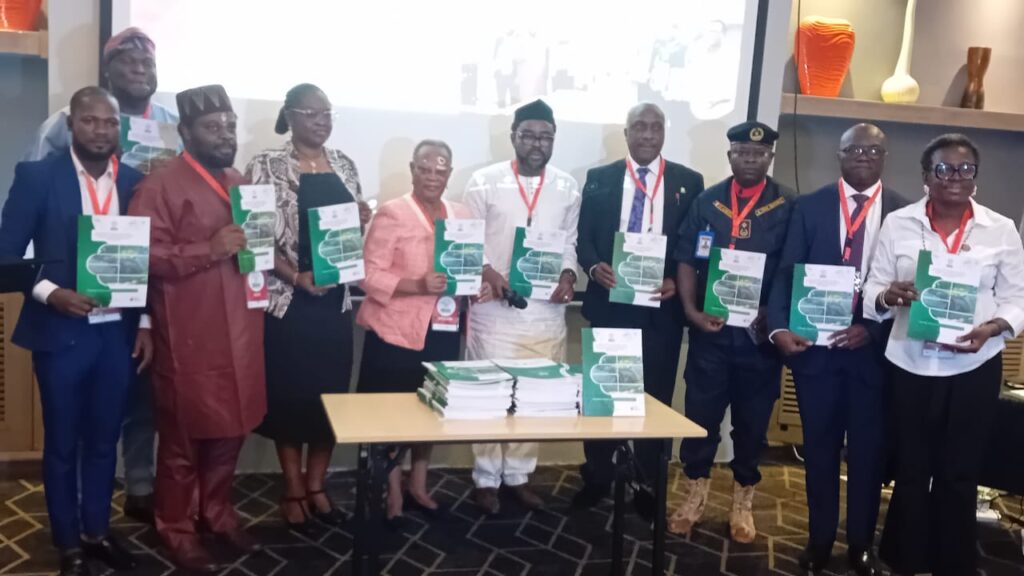The Human and Environmental Development Agenda (HEDA Resources Centre) has decried the high pollution in the Niger Delta region of Nigeria.
Chairman, HEDA Resources Centre, Olanrewaju Suraju, also called for quick and permanent remedial measures to address the menace in the region.
He spoke in an interview with journalists in Lagos on Wednesday on the sidelines of the public presentation of HEDA’s publication: “Marginal Fields’ Awards, Regulators’ Independence, and Environmental Injustice: Paradox of Beneficial Ownership and the Host Communities.”
Suraju said: ” So even beyond the economic importance of whatever happens in that sector, it is also the environmental and also community implications of all those operations and activities.
“Nigeria is reputed as the most polluted environment in the world, particularly the Niger Delta of Nigeria where the oil companies exist. So with the recent marginal field allocation bidding and processes, HEDA has decided with our partners, both local and international, to review what transpired in the allocation of those licenses and at the same time the previous implications of the operation of those kind of fields and the character of organizations.”
He called for the converted and collaborative efforts of all stakeholders to address the degradation and other anomalies in the region.
Suraju said: “The civil society, the media, the diplomatic community and at the same time, international civil society organizations and local ones need to come now to the rescue of the people of the Niger Delta.
“Unfortunately, we can see how many of these companies are struggling and trying to even escape from Nigeria by claiming to divest their assets from Nigeria, and their legacy of liabilities are huge, running into hundreds of billions of liabilities that have not been fulfilled by the companies in the operation.
“So they’ve declared billions of profits and they’ve left the community claiming sometimes to vandalization as being responsible for pollution but many of the times they are even the ones that were declared operational spillages by the companies butare still not cleaned.
“So before we ever allow them to divest and move away from Nigeria, they actually must clean to the remediation. They must pay adequate compensation to the communities and, at the same time pay the necessary dues under the Petroleum Industry Act (PIA) for their decommissioning and abandonment responsibilities.
“Moving forward with this, it is supposed to be from now Nigerian Upstream Petroleum Regulatory Commission (NUPRC), Nigeria Extractive Industries Transparency Initiative (NEITI), the law enforcement agencies are getting on board to make sure that we hold them accountable.
“We don’t just allow them to leave. It is not the community alone; even the government gets to suffer because people are sick, they go to the hospital, and the cost of providing pipe-borne water becomes more expensive. People then are becoming poorer because they are not able to farm and also fish. So the government needs to see it from that point of view rather than the profit point of view.”
The Executive Secretary of NEITI, Orji Ogbonnaya Orji, commended HEDA and all its collaborating partners for their unwavering commitment to fostering transparency, accountability, and justice within Nigeria’s oil and gas sector.
Orji who was represented by Nkechi Is igwe said: “This publication, which follows the earlier work titled “Spotlighting the Oil and Gas: A Review of the 2020/2021 Marginal Fields Bid Licensing Round in Nigeria,” serves as a crucial milestone in our shared mission to address systemic gaps in governance and beneficial ownership transparency.
The earlier report highlighted a significant but complex development, all beneficiaries of the 2020/2021 marginal field bid licensing round are indigenous companies.
“While NEITI recognizes this as an encouraging sign of growing indigenous capacity in the upstream oil and gas sector, we also acknowledge the responsibilities this development imposes. It calls for heightened scrutiny, transparency, and accountability. It demands an unwavering commitment to ensuring that processes are open, competitive,and fair.
“NEITI has actively engaged with the Nigerian Upstream Regulatory Commission (NUPRC) to promote these principles. We appreciate NUPRC’s invitation to NEITI to monitor the process, and we have responded with enthusiasm and dedication.
“However, our role does not stop at mere observation. We must ensure that this process aligns with international best practices of transparency, accountability,and integrity.”















